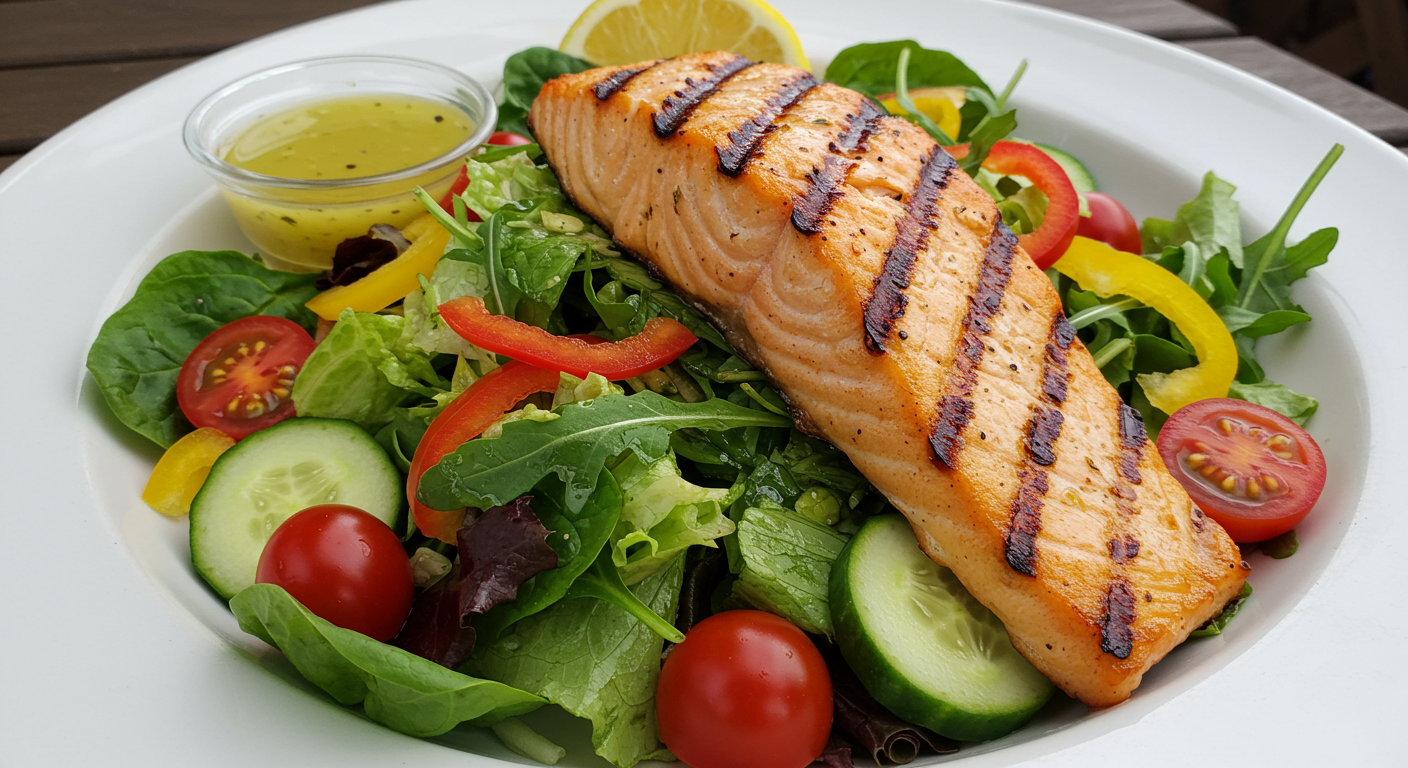What Are Functional Foods?
Functional foods are foods that offer health benefits beyond basic nutrition. They contain bioactive compounds, vitamins, minerals, and other nutrients that promote overall well-being and may help reduce the risk of chronic diseases. These foods can be naturally occurring, such as fruits and vegetables, or fortified with additional nutrients, like calcium-enriched orange juice.
Health Benefits of Functional Foods

Functional foods contribute to better health in multiple ways. Some of their key benefits include:
- Boosting Immunity – Foods like garlic, ginger, and yogurt contain antioxidants and probiotics that enhance immune function.
- Supporting Heart Health – Omega-3-rich foods such as salmon, flaxseeds, and walnuts help lower cholesterol and reduce the risk of heart disease.
- Improving Gut Health – Probiotics and prebiotics found in fermented foods like kimchi, kefir, and yogurt promote a balanced gut microbiome.
- Enhancing Brain Function – Foods like blueberries, dark chocolate, and fatty fish contain nutrients that improve cognitive function and memory.
- Regulating Blood Sugar Levels – High-fiber foods like whole grains, legumes, and leafy greens help maintain stable blood sugar levels and support metabolic health.
- Reducing Inflammation – Turmeric, green tea, and nuts contain anti-inflammatory compounds that help prevent chronic conditions like arthritis and diabetes.
Read Also: The Science Behind Déjà Vu: Unlocking the Mystery of the Mind
How to Incorporate Functional Foods into Your Diet
Adding functional foods to your meals is simple and can be done in various creative ways. Here’s how you can seamlessly integrate them into your diet:
1. Start Your Day with a Nutrient-Packed Breakfast

- Smoothies: Blend spinach, bananas, Greek yogurt, and chia seeds for a nutritious start.
- Oatmeal: Add flaxseeds, nuts, and berries to boost fiber and antioxidants.
- Eggs: Pair with avocado and whole-grain toast for a balanced meal rich in healthy fats and protein.
2. Choose Functional Foods for Snacks

- Nuts and Seeds: Almonds, walnuts, and sunflower seeds provide healthy fats and antioxidants.
- Greek Yogurt with Honey: Rich in probiotics, this snack supports digestion and gut health.
- Dark Chocolate (70% Cocoa or Higher): Contains flavonoids that improve heart health.
3. Incorporate Functional Foods into Lunch and Dinner

- Salads: Toss in leafy greens, quinoa, nuts, and seeds for added nutrients.
- Soups and Stews: Include beans, lentils, and turmeric to enhance fiber and anti-inflammatory benefits.
- Grilled Fish: Choose salmon or mackerel for their high omega-3 content.
4. Replace Processed Foods with Whole, Functional Foods
- Swap white rice for quinoa or brown rice to increase fiber intake.
- Replace sugary drinks with green tea or infused water for antioxidant benefits.
- Choose whole-grain bread over refined white bread for improved digestion and heart health.
5. Use Herbs and Spices for Added Health Benefits
- Add turmeric to curries or golden milk for its anti-inflammatory properties.
- Use garlic and ginger in cooking to boost immune function.
- Sprinkle cinnamon over oatmeal or coffee to help regulate blood sugar levels.
Read Also: The Okra & Water Trend: What Science Says About Its Health Benefits
Conclusion
Incorporating functional foods into your daily diet is an effective way to support overall health and prevent chronic diseases. Whether through small changes like adding flaxseeds to your breakfast or replacing processed snacks with nutrient-rich alternatives, these simple adjustments can have a lasting impact on your well-being. Start making conscious food choices today and experience the benefits of functional foods for a healthier future.
Follow My Facebook Page: infohealthgh



